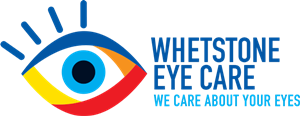Eye Exams For the Whole Family

Routine eye exams are important, regardless of your age or physical health. During a complete eye exam, your eye doctor will not only determine your prescription for eyeglasses or contact lenses, but will also check your eyes for common eye diseases, assess how your eyes work together as a team and evaluate your eyes as an indicator of your overall health.
Your 3-Part Examination
The first focus of your eye exam is to provide you with the best possible prescription(s) to fully match your visual needs. Whether it is for spectacles, contact lenses, protective sports eyewear, golf glasses or scuba diving masks, we will help you achieve the best possible vision!
The second focus of your exam is to ensure that today’s digital devices (laptops, tablets and smart phones) do not challenge the way your eyes work as a team. Comfortable vision is the key in our computer-driven world. We want to ensure that your eyes are not overly challenged so you can take full advantage of today’s latest technology.
Lastly, our exam is more than just fitting you for a pair of eyeglasses. We focus on the health of your eye’s surrounding tissue. We check for cataracts, glaucoma, retinal disorders, age-related macular degeneration (AMD) or any other ocular manifestations of systemic disease such as hypertension, diabetes, or elevated cholesterol. We are thorough! Our comprehensive examination will help ensure that your precious sight will last you an entire lifetime!
Eye Care for Everyone
How Often Do You Need to See the Optometrist, Based on Age?
The AOA recommends an annual eye exam for any patient who wears eyeglasses or contacts. If you don’t normally need vision correction, you still need an eye exam every year. Doctors often recommend more frequent eye examinations for people with diabetes, high blood pressure and other disorders, because many diseases can have an impact on vision and eye health.
Since the risk of eye disease continues to increase with advancing age, everyone over the age of 60 should be examined annually.
If you are over 40, it’s a good idea to have your eyes examined every one to two years to check for common age-related eye problems such as presbyopia, cataracts and macular degeneration.
Eye Exams for Children
Some experts estimate that approximately 5% to 10% of pre-schoolers and 25% of school-aged children have vision problems. According to the American Optometric Association (AOA), all children should have their eyes examined at 6 months of age, at age 3 and again at the start of school. Children without vision problems or risk factors for eye or vision problems should then continue to have their eyes examined at every year throughout school.
Children with existing vision problems or risk factors should have their eyes examined more frequently. Common risk factors for vision problems include:
- premature birth
- developmental delays
- turned or crossed eyes
- family history of eye disease
- history of eye injury
- other physical illness or disease
The AOA recommends that children who wear eyeglasses or contact lenses should have their eyes examined at least every 12 months or according to their optometrist’s instructions. Read more about Pediatric Eye Exams.
Schedule an Eye Doctor’s Appointment
Contact our eye care clinic to schedule an eye exam near you, today.

We will be closed on the following Holidays: